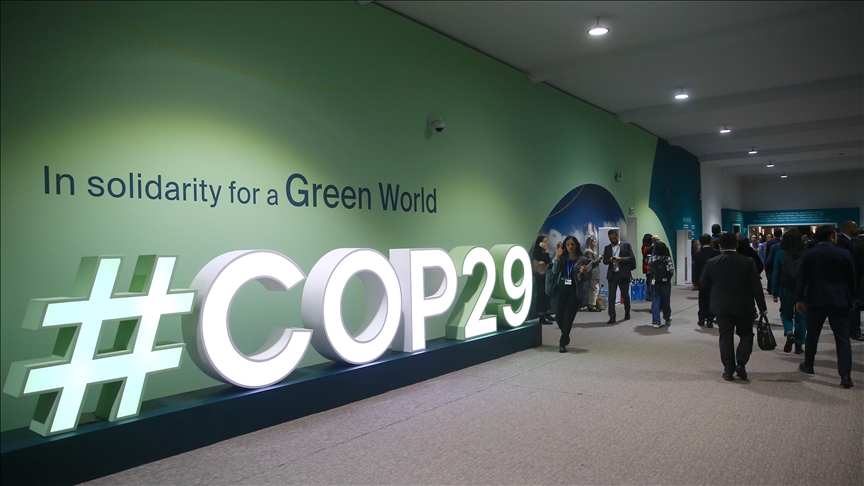ISTANBUL
After two weeks of tense negotiations, COP29 in Baku, Azerbaijan’s capital, concluded with an agreement on a new climate finance target: $300 billion annually by 2035.
Despite the agreement, many developing nations, including Cuba and India, slammed the $300 billion annual pledge, calling it “too little, too late.”
Delegates from these countries expressed frustration, stating that the commitment was insufficient to address the urgent climate adaptation and mitigation needs.
UN Climate Change Executive Secretary Simon Stiell described the climate finance agreement as “an insurance policy for humanity,” stressing that, like any insurance, it is only effective if the commitments are met in full and on time.
He emphasized that promises must be honored to protect billions of lives.
Why developing countries, NGOs slam finance deal
The deal announced at 03:00 local time Sunday (2300GMT Saturday), promises $300 billion annually by 2035, with efforts to raise $1.3 trillion a year from public and private sources.
Chandni Raina, an Indian delegate, said her country’s request to speak before COP29’s agreement adoption was ignored, calling it an “unfortunate incident.”
Cedric Schuster, chair of the Alliance of Small Island States, condemned the deal, saying, “Our islands are sinking. How can you expect us to go back to the women, men, and children of our countries with a poor deal?”
WaterAid slammed it as a “death sentence for millions,” while Extinction Rebellion described COP29 as a failure.
Experts argue that to meet global climate goals, richer countries must help emerging economies cut emissions, as they have accounted for 75% of the increase in emissions over the past decade.
New national climate plans will be released next spring, outlining each country’s strategy for reducing greenhouse gas emissions over the next decade.
A more generous financial package at COP29 could have positively impacted these efforts.
Failure to reaffirm commitment to fossil fuel transition
The funds pledged are intended to help poorer nations shift from fossil fuels to renewable energy like wind and solar.
At COP29, a key issue was the failure to explicitly repeat last year’s COP28 pledge to phase out fossil fuels.
While the 2023 summit was the first time 200 countries, including major oil producers like Saudi Arabia and the US, acknowledged the need to reduce reliance on fossil fuels, COP29 only mentioned the deal without reaffirming it.
Critics argue that this demonstrates a lack of progress toward renewable energy goals, leaving many negotiators dissatisfied.
Is COP ‘no longer fit for purpose’?
The COP process is facing increasing doubt amid rising emissions and global temperatures, with 2024 set to be the hottest year on record.
Many senior negotiators privately expressed frustration with what some called the “worst COP” in a decade.
Midway through the talks, several climate leaders publicly called for reform, writing a letter declaring that the COP process is “no longer fit for purpose” and urging significant changes.
Though Donald Trump was not at COP29, his election victory in November 2024 has raised concerns among climate activists.
Many negotiators focused on “Trump-proofing” climate action after President-elect Donald Trump’s pick to lead the Department of Energy, fossil fuel executive Chris Wright, who has erroneously claimed on social media that “there is no climate crisis, and we’re not in the midst of an energy transition either.”
Wright is said to be a vocal “evangelist” for fossil fuels who consistently disagrees with mainstream climate science.
Experts warn that the second Trump administration may undermine global climate progress, as the world’s largest historical emitter is unlikely to contribute to the financial target.

